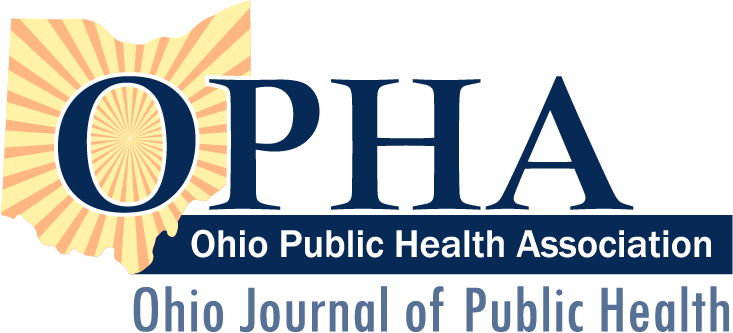Resilience and Mental Health in Southwest Ohio During the COVID-19 Pandemic
Abstract
Background: During the COVID-19 pandemic, anxiety and depression rates spiked across the United States and continued to climb after August 2020. Research from the early months of the COVID-19 pandemic suggests that resilience and meaning-and-purpose were associated with positive mental health outcomes in this context. Little is understood about how this association persists after more than 5 months of ongoing disaster exposure, as was the case for the COVID-19 pandemic. The goal was to examine this relationship in adults in Southwest Ohio.
Methods: Resilience, meaning-and-purpose, anxiety, and depression symptom surveys were completed electronically from August 1, 2020, to November 30, 2020. Regression analyses examined relationships between these factors and sociodemographic variables.
Results: Participants (N=98) reported anxiety and depression in mild ranges. Age was negatively associated with anxiety (p=.03). Meaning-and-purpose was negatively associated with both anxiety (p=.002) and depression (p<.001). Resilience was negatively associated with depression (p=.001). Further, reporting a mental health condition moderated the relationship between resilience and anxiety (p=.03), such that higher resilience was associated with higher anxiety in individuals reporting a mental health condition.
Conclusion: Our study found associations between anxiety and depression symptoms and meaning-and-purpose. Our study also found associations between anxiety and depression symptoms and resilience. The moderated relationship between resilience and anxiety symptoms supports the importance of assessing mental health status, particularly during public health emergencies. Regardless of mental health status, higher meaning-and-purpose was associated with lower anxiety and depression. Additional research is needed to better understand the role of meaning-and-purpose and resilience during future public health challenges.
Keywords: Brief Resilience Scale, Meaning and purpose, COVID-19 pandemic, Disaster, Mental health
How to Cite:
Gray, E., Murphy, B., Gomes, S. M., Mara, C. A., Butsch Kovacic, M., Watkins, S. M., Hood, A. M., Mitchell, M. J. & Crosby, L. E., (2025) “Resilience and Mental Health in Southwest Ohio During the COVID-19 Pandemic”, Ohio Journal of Public Health 7(2), 1-8. doi: https://doi.org/10.18061/ojph.6420
Downloads
Download PDF
View
PDF

